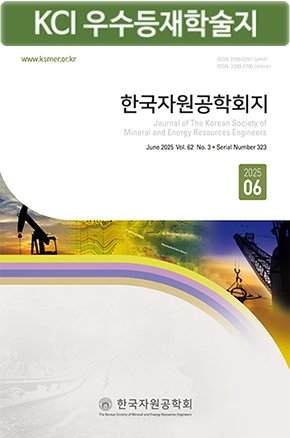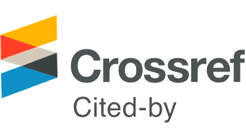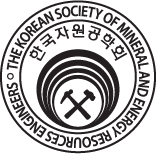Code of Research Ethics
Code of Research Ethics
of the Korean Society of Mineral and Energy Resources Engineers
Enactment: November 15, 2007
First Amendment: October 02, 2008
Second Amendment: December 09, 2009
Third Amendment: January 01, 2013
Fourth Amendment: January 18, 2018
Fifth Amendment: March 23, 2020
Sixth Amendment: October 27, 2022
Article1 (Purpose)
This code of research ethics (“Code”) lays out a set of general principles and directives with a view to ensuring basic practice of research ethics for the publications of the Korean Society of Mineral and Energy Resources Engineers (“Society”).
Article2 (Subject of Application)
The Code shall apply to all researchers participating in academic activities hosted by the Society, such as conferences and publication activities including its journal, research projects, and educational projects.
Article3 (Scope of Application)
The scope of the research ethics of the Society shall be determined by the Code, except for cases governed by special provisions of an overriding law of a government regarding the ethics and integrity of a specific research field.
Article4 (Scope of Research Misconduct)
Research misconduct (“Misconduct”) within the meaning of the Code refers to fabrication, falsification, plagiarism, and inappropriate authorship assignment committed in relation to the proposal, conduct, and presentation of a project, and the presentation, submission, and publication of an article, as specified in the clauses below.
①“Fabrication” is the construction of research data or results that never occurred.
②“Falsification” is the distortion of research data or results by willfully manipulating research materials, equipment, or processes, or arbitrarily changing or omitting data or results.
③“Plagiarism” is the appropriation of another person’s ideas, processes, data, or results without receiving proper permission or providing appropriate citation.
④“Duplicate publication” is the act of publishing papers in this journal that have been published in domestic and international academic journals.
⑤“Inappropriate authorship assignment” is the failure to assign authorship of a paper to a person who has made scholarly or technical contributions to the research data or results without a justifiable reason, or inappropriately assigning authorship of a paper to a person who has not made any scholarly or technical contributions as a token of gratitude or courtesy.
Authorship must be given to any author who is expected to have substantial contributions to the conception or design of the research work, or the acquisition, analysis, or interpretation of data for the research work, AND drafting the research work or revising it critically for important intellectual content, AND final approval of the version to be published, AND agreement to be accountable for all aspects of the research work in ensuring that questions related to the accuracy or integrity of any part of the research work are appropriately investigated and resolved.
⑥An act which intentionally interferes with the investigation of a violation suspected to have been committed by oneself or others, or harming or threatening the informant.
⑦An act which seriously deviating from the practices commonly accepted in the scholarly community.
⑧All other misbehaviors judged to require inspective or preventive measures at the Society level.
Article5 (Protection of Informant’s Right)
①“The Informant” refers to a person who informs the Society of the fact or provides the substantive evidence of the Misconduct known to him/her.
②The Informant may provide information in any conceivable form, oral or written, by phone or email, using his/her real name as a matter of principle; provided, however, that any case in which an anonymous provision of information includes the project or paper title accompanied by details and substantive evidence of concrete misbehavior sent by post or email shall be treated as information provided under the real name.
③Any information related to the Informant’s identity shall not be disclosed, and the Society shall make efforts to protect the Informant from being disadvantaged due to having reported the Misconduct.
④The Informant shall have the right to request that the Society provides information on the ongoing investigation procedure, schedule, etc. after reporting the Misconduct.
Article6 (Protection of Examinee’s Rights)
①“The Examinee” refers to a person who is investigated under suspicion of having committed the Misconduct reported to, or recognized by, the Society, or under suspicion of being involved in the Misconduct as uncovered during the course of the investigation. Individuals summoned to the investigative committee as testifiers or witnesses are not considered examinees.
②The Society shall make efforts to protect the Examinee from having one’s honor or rights unjustly infringed upon during the course of the investigation.
③The Society shall not disclose any suspicions raised about the Misconduct prior to a confirmed outcome from the investigation.
④The Examinee shall have the right to request the Society provides information about the ongoing investigation into the Misconduct, procedures, and schedules, etc.
Article7 (Composition and Authority of Research Ethics Committee)
The Research Ethics Committee (“Committee”) of the Society shall be subordinate to the Board of Directors. The Committee Chair shall be appointed by the President of the Society from among the Vice-Presidents and shall elect five to ten Committee Members from among the editors. The Examinee shall be excluded from the list of candidates for the Chair or Members of the Committee. The Committee shall be able to request the attendance of the Informant, the Examinee, witnesses, and testifiers, and to present preparation materials for the affidavit. The Examinee shall not have the right to decline such a request.
Article8 (Investigation and Report of Research Misconduct)
Upon receiving a research ethics issue in relation to the academic activities of the Society, the President of the Society shall notify the Committee of the issue with the request for investigation. The Committee shall investigate the Misconduct and report the results within six months, whereby the following items must be included in all cases:
①Details of the reported Misconduct
②The Misconduct to be investigated
③List of Committee Members and meeting minutes
④Scope of the Misconduct in the study concerned, and outcome of the investigation
⑤Related evidence and witnesses
Article9 (Principle of Verification)
The Committee shall have the obligation to verify whether the Misconduct is true or not, shall guarantee the Informant and the Examinee’s equal rights and opportunities to state their respective opinions, to raise objection, and to defend themselves, and shall notify them of related procedures in advance. Furthermore, the Board of Directors shall make efforts to ensure that the independence and impartiality of the Committee is upheld.
Article10 (Follow-up Measures on Investigation Report)
If the Misconduct cannot be verified, the Society shall take appropriate the follow-up measures to restore the honor and reputation of the researcher concerned. If, on the contrary, the Misconduct is confirmed, this shall be published and each of the follow-up measures listed below shall be taken in accordance with the gravity of the Misconduct, whereby the related decision shall be made by the Board of Directors:
①Request for cancellation or modification of the research results
②Cancellation of the publication of the research results (In the case of a published study, official notice for cancellation shall be sent to the pertinent institution.)
③Suspension of membership for an adequate period
④Removal of the name from the membership list
⑤Report to the pertinent law enforcement body
Article11 (Others)
Any provisions not specified in the Code shall be handled in accordance with the resolution by the Board of Directors.
By-law
Article1(Date of Enforcement). This Code shall come into force on the date of enactment.
한국자원공학회 연구윤리규정
2007년 11월 15일 제정
2008년 10월 02일 1차 개정
2009년 12월 09일 2차 개정
2013년 1월 1일 3차 개정
2018년 1월 18일 4차 개정
2020년 3월 23일 5차 개정
2022년 10월 27일 6차 개정
제1조 (목적) 본 규정은 한국자원공학회(이하 “학회”라 한다) 발행 출판물의 연구윤리를 확보하기 위한 기본 원칙과 방향을 제시하는 것을 목적으로 한다.
제2조 (적용대상) 본 규정은 학회 주관의 학술행사, 학술지 등 출판사업, 연구사업, 교육사업 등의 학술활동에 참여하는 연구자에게 적용한다.
제3조 (적용범위) 본 학회의 연구윤리 범위는 특정 연구 분야의 윤리 및 진실성에 관하여 국가기관의 상위 법령에 특별한 규정이 있는 경우를 제외하고는 본 규정에 따른다.
제4조 (연구부정행위의 범위) 본 규정에서 제시하는 연구부정행위(이하 “부정행위”라 한다)는 연구 사업의 제안, 수행, 발표와 논문의 발표, 투고, 게재 등에서 행하여진 위조‧변조‧표절과 부당한 논문저자 표시 등의 행위를 말하며 다음 각 호와 같다.
① “위조”는 존재하지 않는 자료 또는 연구결과 등을 허위로 만드는 행위를 말한다.
② “변조”는 연구 재료, 장비, 과정 등을 인위적으로 조작하거나 자료의 임의 변형, 삭제 등으로 연구 내용 또는 결과를 왜곡하는 행위를 말한다.
③ “표절”은 타인의 아이디어, 연구 내용, 결과 등을 정당한 승인 또는 인용 없이 도용하는 행위를 말한다.
④ “중복게재”는 국내·외 학술지에 게재된 논문을 본 학술지에 중복하여 게재하는 행위를 말한다.
⑤ “부당한 논문저자 표시”는 연구내용 또는 결과에 대하여 학술적, 기술적 공헌 또는 기여를 한 자에게 정당한 이유 없이 논문저자 자격을 부여하지 않거나, 학술적, 기술적 공헌 또는 기여를 하지 않은 자에게 감사의 표시, 예우 등을 이유로 논문저자 자격을 부여하는 행위를 말한다. 논문저자의 자격은 다음의 조건을 모두 만족한 경우에 부여한다.
- 연구의 개념 정립이나 설계, 또는 연구 자료의 획득이나 분석, 또는 해석에 기여함.
- 중요한 학술적 내용에 대해 초안 작업을 하거나 수정함.
- 출판본을 최종적으로 승인함.
- 연구의 정확성 또는 진실성과 관련된 질문들이 적절히 조사 및 해결되도록 책임을 다함.
⑥ 본인 또는 타인의 부정행위 의혹에 대한 조사를 고의로 방해하거나 제보자에게 위해를 가하는 행위
⑦ 학계에서 통상적으로 용인되는 범위를 심각하게 벗어난 행위
⑧ 이 외에 학회 자체적으로 조사 또는 예방이 필요하다고 판단되는 부정행위
제5조 (제보자의 권리 보호)
① “제보자”는 부정행위를 인지한 사실 또는 관련 증거를 학회에 알린 자를 말한다.
② 제보자는 구술, 서면, 전화, 전자우편 등 가능한 모든 방법을 이용하여 제보할수 있으며, 실명으로 제보함을 원칙으로 한다. 단, 익명의 제보라 하더라도 서면 또는 전자우편으로 연구사업명 또는 논문명, 구체적 부정행위의 내용과 증거를 포함하여 제보한 경우는 이를 실명 제보에 준하여 처리한다.
③ 제보자의 신원에 관한 사항은 정보공개의 대상이 되지 않으며, 학회는 제보자가 신고를 이유로 불이익을 받지 않도록 노력한다.
④ 제보자는 부정행위의 신고 이후에 진행되는 조사 절차 및 일정 등에 대하여 알 고자 할 경우에 이를 학회에 요구할 수 있다.
제6조 (피조사자의 권리 보호)
① “피조사자”는 제보 또는 학회의 인지에 의하여 부정행위의 조사 대상이 된 자 또는 조사 수행 과정에서 부정행위에 가담한 것으로 추정되어 조사대상이 된 자를 말하며, 조사과정에서의 참고인이나 증인은 이에 포함되지 아니한다.
② 학회는 검증과정에서 피조사자의 명예나 권리가 부당하게 침해되지 않도록 노력한다.
③ 부정행위에 대한 의혹은 판정 결과가 확정되기 전까지 외부에 공개돼서는 안된다.
④ 피조사자는 부정행위 조사, 처리절차 및 처리일정 등에 대하여 알고자 할 경우에 이를 학회에 요구할 수 있다.
제7조 (연구윤리위원회 구성 및 권한) 본 학회의 연구윤리위원회는 본 학회 이사회 아래에 설치하고 학회장은 부회장 중의 1인을 위원장으로 임명하며, 위원장이 편집위원 중에서 5~10인을 위원으로 선임한다. 단, 피조사자는 위원장 또는 위원으로 참여할 수 없다. 연구윤리위원회는 제보자, 피조사자, 증인 및 참고인에게 진술을 위한 출석과 준비자료 등을 요구할 수 있으며, 이 경우 피조사자는 반드시 응하여야 한다.
제8조 (연구부정행위의 조사 및 결과 보고) 본 학회의 학술활동과 관련하여 연구윤리 문제가 접수되면 학회장은 연구윤리위원회에 사안을 통보하고, 조사와 결과보고를 의뢰한다. 연구윤리위원회는 연구부정행위를 조사하고, 그 결과를 6개월 이내에 보고하며, 다음 각 항을 반드시 포함시켜야 한다.
① 제보 내용
② 조사대상이 된 부정행위
③ 연구윤리위원회의 위원 명단 및 회의록
④ 해당 연구에서의 부정행위 범위와 사실 여부 판단
⑤ 관련 증거 및 증인
제9조 (검증원칙) 연구윤리위원회는 부정행위 사실 여부를 입증할 책임을 가지며, 제보자와 피조사자에게 의견진술, 이의제기 및 변론의 권리와 기회를 동등하게 보장하여야 하며, 관련 절차를 사전에 통보하여야 한다. 또한 이사회는 동 위원회의 독립성과 공정성을 유지할 수 있도록 노력하여야 한다.
제10조 (조사결과 보고에 대한 후속 조치) 조사결과에서 연구부정행위가 없었던 것으로 확정될 경우, 학회는 해당 연구자의 명예를 회복하기 위한 적절한 후속조치를 취할 수 있다. 연구부정행위가 확정될 경우는 이를 공표하고 부정행위의 경감에 따라 다음 각 호의 후속조치를 취할 수 있으며, 이에 대한 결정은 이사회의 의결에 따른다.
① 연구 결과물에 대한 취소 또는 수정 요구
② 연구 결과물의 게재 취소(기출간물의 경우, 유관기관에 취소 공문 발송)
③ 적정기간 회원자격 상실
④ 제명
⑤ 법률기관에의 고발 등
제11조 (기타) 본 규정에서 정하지 않은 사항은 이사회의 결의에 따른다.
부 칙
제1조 (시행일) 본 규정은 제정한 날로부터 시행한다.


 Journal of the Korean Society of Mineral and Energy Resources Engineers
Journal of the Korean Society of Mineral and Energy Resources Engineers








